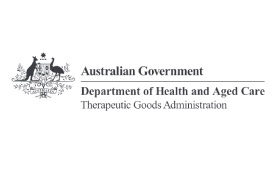The TGA Press Release
Here’s a precis via Psychedelic Alpha
The headline: Australia Recognises MDMA and Psilocybin as Medicines; Limited Rescheduling Decision Makes Australia the First Country to Officially Recognise the Drugs as Medicines (Psychedelic Alpha, Feb 3, 2023)
Now that the initial excitement is subsiding, we’re embarking on an attempt to understand what the implications of this forthcoming rescheduling might be. For example: will this create a meaningful access pathway for those with PTSD and TRD diagnoses in Australia? Or, is it primarily concerned with loosening restrictions on clinical research in the country?
We will be doing a deeper dive into this topic in the coming weeks, but for now Rhys Cohen provides a breakdown of the hurdles that any prospective prescriber would have to jump via his Twitter thread.
Cohen believes that access to MDMA and psilocybin might follow a similar trajectory to the legalisation of medical cannabis in the country. “I predict that, at first, access will be non-existent”, he said on Twitter, explaining that Human Research Ethics Committees (HRECs) and professional Colleges may refuse to endorse psychiatrists’ prescribing of these drugs.
On this front, he also reminds us of last summer’s memorandum from the Royal Australian and New Zealand College of Psychiatrists which didn’t mince its words (though, is it really a surprising or noteworthy stance by the College, given the fact that no psychedelic products are approved?):
“Clinical use of psychedelic substances should only occur under research trial conditions that include oversight by an institutional research ethics committee and careful monitoring and reporting of efficacy and safety outcomes.”
Might this be a case of the regulator (TGA) passing the hot (politically-charged) potato to the HRECs or Colleges, which we might (at least in the case of the latter) expect to remain conservative in their approach toward psychedelic therapies?
Here’s the Mind Medecine Australia press release

It’s an incredible day!
Earlier today, the Therapeutic Goods Administration (TGA) announced that – from the 1st July 2023 – the medical use of MDMA and Psilocybin will be rescheduled from Schedule 9 (prohibited substances) to Schedule 8 (controlled medicines) of the Poisons Standard. This will enable authorised psychiatrists to prescribe these substances for treatment-resistant depression and treatment resistant post-traumatic stress disorder.
All other uses of MDMA and Psilocybin will remain in Schedule 9.
The TGA’s decision to reschedule these substances for medical purposes for use by authorised psychiatrists is in response to Mind Medicine Australia’s rescheduling application lodged in March 2022 (and earlier application lodged in July 2020) and the enormous number of Australians who lodged their submissions in support.
You can read the TGA’s full announcement and the Delegate’s Final Decision here – https://www.tga.gov.au/news/media-releases/change-classification-psilocybin-and-mdma-enable-prescribing-authorised-psychiatrists
We are delighted with the decision which will be welcomed by so many suffering Australians. It specifically recognises the current lack of options for patients with specific treatment-resistant mental illnesses and the supporting evidence of safety and efficacy from clinical trials.
We want to express our enormous gratitude to the tens of thousands of people who have made this breakthrough possible including the TGA, the Delegate, the members of the TGA’s Medicines Scheduling Advisory Committee and all of the psychiatrists, psychologists, other mental health professionals, world leading experts and all of the people who put in submissions of support.
The support that we have had throughout this process has been incredible and overwhelming.
Finally, our hearts go out to all those Australians suffering from treatment resistant depression and treatment resistant post-traumatic stress disorder. They will now have the opportunity of accessing this breakthrough treatment with their mental health professionals, which has shown such positive safety and efficacy results internationally.
Warmly,
Tania de Jong AM, Peter Hunt AM and the Mind Medicine Australia Team
P.S. Please watch this space. We will shortly be making a very exciting announcement about our Certificate in Psychedelic-Assisted Therapies and look forward to welcoming clinicians and health practitioners from around Australia to this world leading professional development training program.


 Cannabis News1 year ago
Cannabis News1 year ago
 One-Hit Wonders1 year ago
One-Hit Wonders1 year ago
 Cannabis 1011 year ago
Cannabis 1011 year ago
 drug testing7 months ago
drug testing7 months ago
 Marijuana Business Daily1 year ago
Marijuana Business Daily1 year ago
 Education1 year ago
Education1 year ago
 Cannabis1 year ago
Cannabis1 year ago
 Education1 year ago
Education1 year ago

















